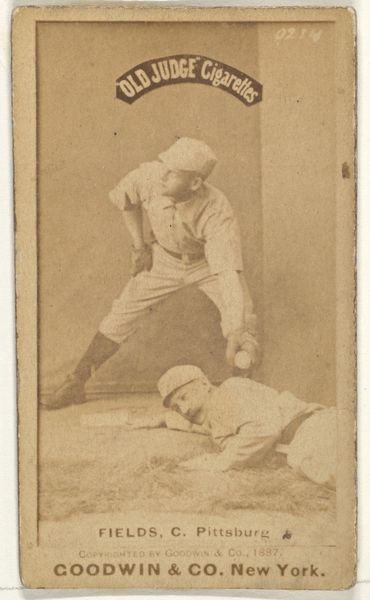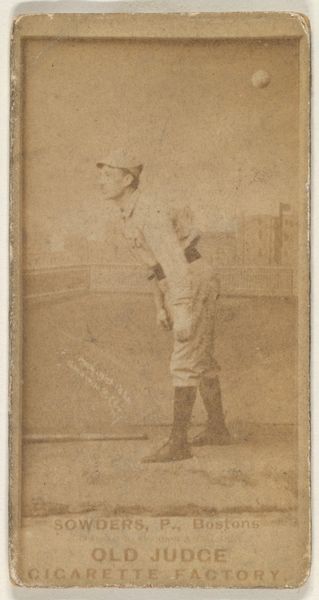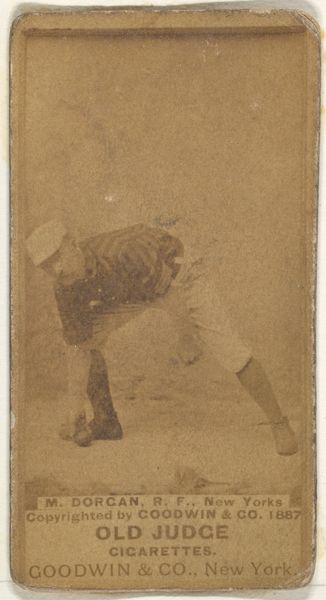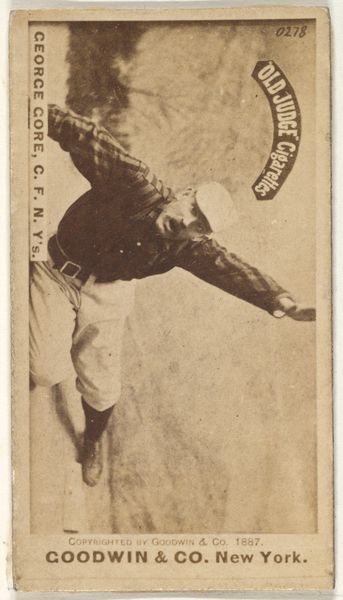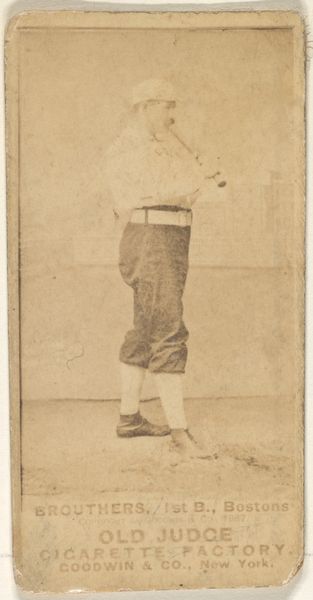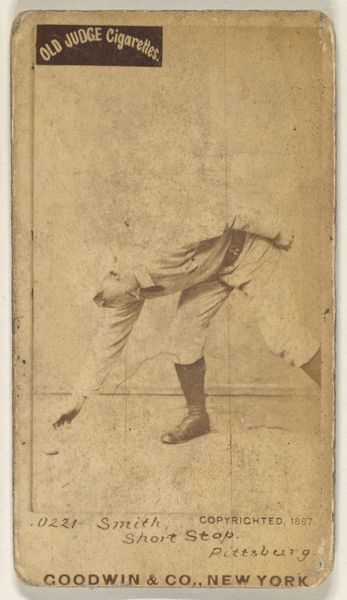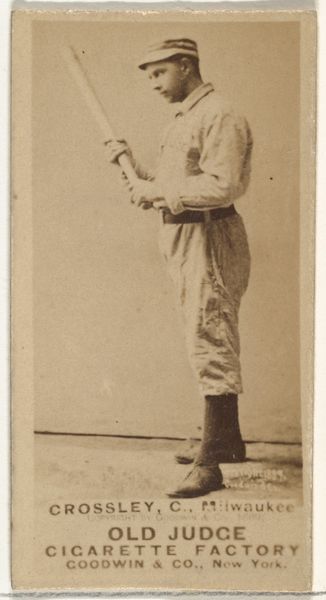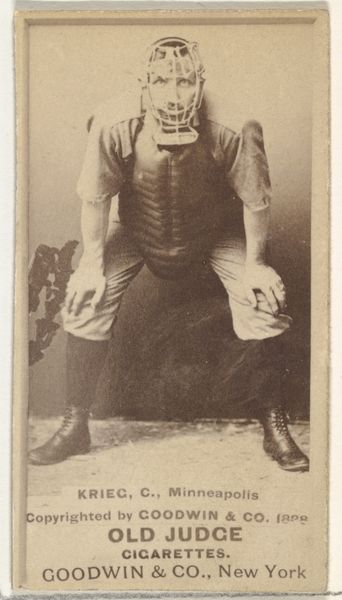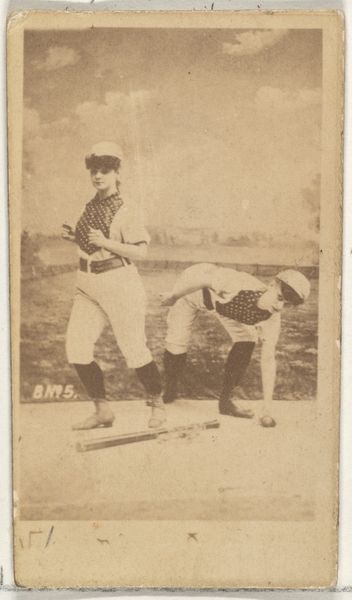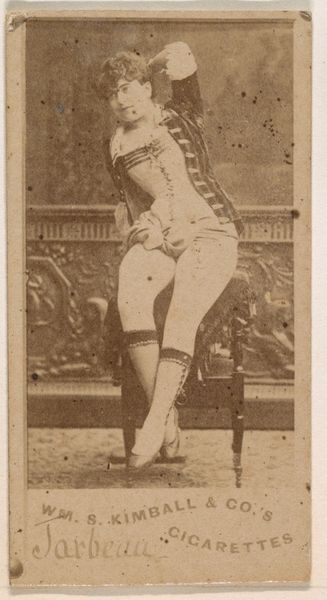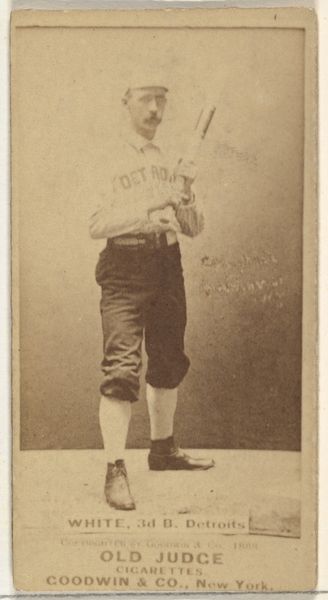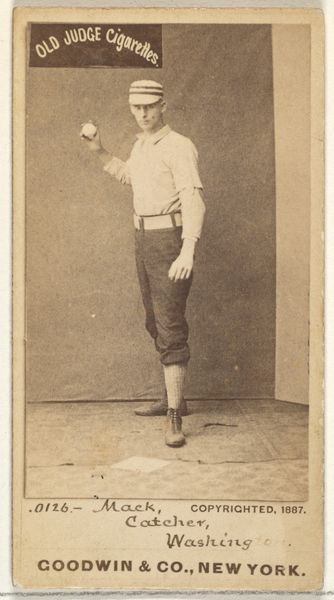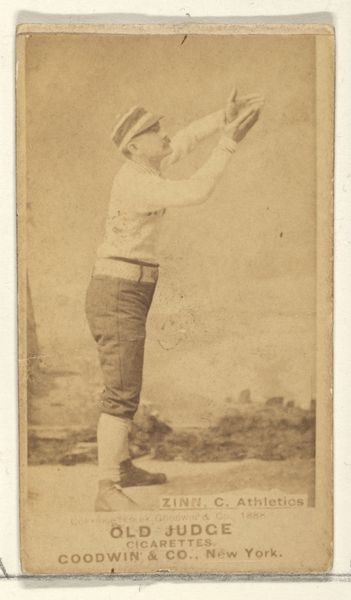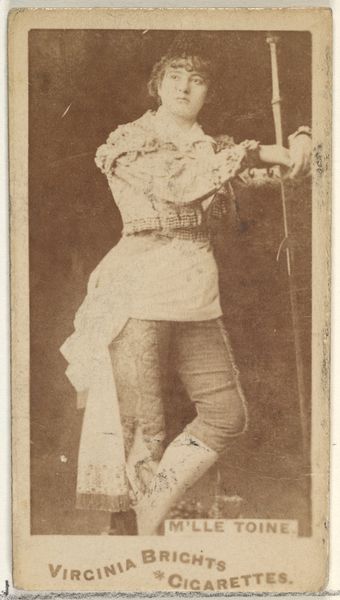
Clark and Hughes, Brooklyn Bridegrooms, from the Old Judge series (N172) for Old Judge Cigarettes 1889
0:00
0:00
drawing, print, photography, albumen-print
#
portrait
#
drawing
# print
#
baseball
#
photography
#
men
#
genre-painting
#
albumen-print
Dimensions: sheet: 1 3/8 x 2 11/16 in. (3.5 x 6.9 cm)
Copyright: Public Domain
Curator: Let's take a look at this rather fascinating albumen print titled "Clark and Hughes, Brooklyn Bridegrooms" from 1889, part of the Old Judge Cigarettes series produced by Goodwin & Company. Editor: It's…peculiar. The sepia tone gives it an antique feel, naturally, but the awkward pose and almost uncomfortable proximity between the two men makes you wonder. And a cigarette advertisement, really? Curator: Exactly. These cards were distributed as promotional items, intended to build brand loyalty among baseball fans. Consider it a cultural snapshot of late 19th-century America where sporting heroes endorsed, quite openly, such vices. Editor: It's definitely unsettling how normalized it was. The baseball players are rendered as objects of desire or admiration, essentially leveraging their athletic prowess to push cigarettes. But beyond the questionable ethics, it serves as a striking illustration of commodified masculinity at the time. These are not simply athletes; they’re also symbols intertwined with commerce. Curator: Furthermore, the specific baseball positions the players held may have impacted who Goodwin & Co chose to celebrate. Were Clark and Hughes revered members of the team? It would be interesting to examine the popularity of particular roles to get a better view on representation. Editor: And the very title itself! “Brooklyn Bridegrooms.” It's so loaded with implications for a contemporary audience. What statement are we making—or the cigarette company was making—about these figures, their virility and desirability, by imbuing it with coded, yet intimate overtones. Curator: A point well taken! Remember, at that point in time, photographic technologies had advanced greatly. Consider the power of being captured, shared, and consumed; how such practices shaped ideas around fame, consumerism and what could be considered the emergence of a star system. Editor: I feel this is such a prime example of the pervasive influence of corporate America on popular culture. Examining artwork such as this invites necessary questioning of historical legacies and reminds us to consider deeply, whom the institutions ultimately empower. Curator: Ultimately, these trade cards acted as social conduits; tools used for advertising, promotion, and the construction of ideal citizens at the dawn of industrialization. Editor: Agreed. The image offers a window into a world where baseball, commerce, and ideas about masculinity collided, making it essential to see through the nostalgic lens to analyze with critical distance.
Comments
No comments
Be the first to comment and join the conversation on the ultimate creative platform.
